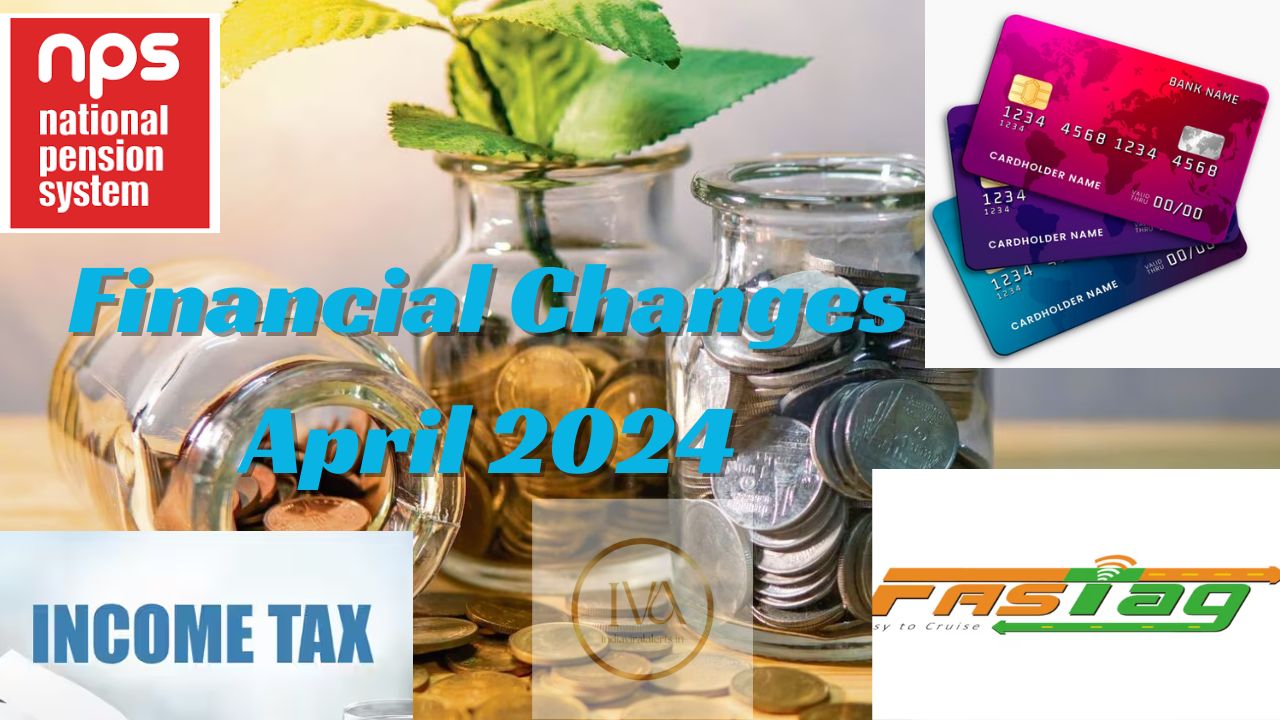April 1 FY25: Updated Financial Changes rules for income tax regime, NPS, credit cards, insurance policies. Check here

April marks the start of the new financial year 2024-25. It comes with some crucial money-related changes that can have an impact on the way you spend money and invest. Here are some important financial changes that will come into effect in April 2024:
New Tax Regime
In a significant move, effective April 1, 2024, the Centre will introduce the New Tax Regime as the default setting. This means that unless individuals explicitly opt for the old tax structure, they will be subject to the provisions of this new system.
What Does the New Tax Regime Entail?
Under the new tax regime, income tax slabs for FY 2024-25 (AY 2025-26) will remain unchanged. This stability offers taxpayers a sense of predictability and allows for better financial planning. Notably, no alterations have been announced in the interim budget, signifying a continuity of policy in this regard.
Key Features of the New Tax System
Automatic Assessment
One of the most notable aspects of the new regime is its automatic assessment mechanism. Taxes will be assessed and applied automatically, streamlining the process for taxpayers and ensuring compliance.
Opt-Out Provision
While the new tax regime will be the default setting, individuals retain the option to opt-out and adhere to the old tax structure if they so choose. This flexibility empowers taxpayers to make decisions aligned with their financial preferences and circumstances.
Exemption Threshold
Under the renewed scheme, individuals earning an income of up to Rs 7 lakh annually will not be liable for paying taxes. This exemption threshold provides relief to a significant portion of the population, particularly those in lower income brackets.
Simplified Compliance
The new tax regime aims to simplify compliance procedures, reducing the administrative burden on taxpayers. By streamlining processes and minimizing complexities, the system seeks to enhance efficiency and promote voluntary compliance.
The implementation of the New Tax Regime marks a significant milestone in the realm of taxation. With its emphasis on automatic assessment, flexibility, and simplified compliance, the new system is poised to streamline processes and enhance the overall tax experience for individuals.
New NPS Rule
The Pension Fund Regulatory and Development Authority (PFRDA) has improved the security of the National Pension System (NPS). A new security layer, including a two-factor Aadhaar authentication, will become mandatory for all users logging into the CRA system.
SBI Credit Card Changes
SBI Card announced that the accrual of reward points on rent payment transactions will be discontinued for certain credit cards from April 1, 2024. This includes credit cards like AURUM, SBI Card Elite, SBI Card Elite Advantage, SBI Card Pulse, and SimplyCLICK SBI Card.
YES Bank Credit Card Changes
YES Bank credit card holders who spend ₹10,000 or more in a calendar quarter will become eligible for complimentary domestic lounge access from April 1.
ICICI Bank Credit Card Changes
ICICI Bank website notes this change from April 1, “You can enjoy One complimentary airport lounge access by spending Rs. 35,000 in the preceding calendar quarter. Spends made in the preceding calendar quarter will unlock access for the subsequent calendar quarter. To be eligible for complimentary lounge access in Apr-May-Jun, 2024 quarter, you need to spend a minimum of Rs.35,000 in the January-February-March 2024 quarter and similarly for following quarters.”
Ola Money Wallet
OLA Money announced that it will switch to small PPI (prepaid payment instrument) wallet services with a maximum wallet load restriction of ₹10,000 per month from April 1.
Debit Cards
SBI has increased annual maintenance charges by Rs 75 for specific debit cards, effective from April 1, 2024, as stated on their website.
Mutual Funds
From April 1, investors who have not re-done their KYC (know your customer) will not be allowed to do any MF transactions. These would include SIPs (systematic investment plan), SWPs (systematic withdrawal plan), and redemptions.
E-Insurance to Become Mandatory
The Insurance Regulatory and Development Authority of India (IRDAI) has earlier said that it will be compulsory to digitize insurance policies starting April 1, 2024. Under this directive, all insurance policies across various categories, including life, health, and general insurance, will be issued electronically.
Surrender Value for Insurance Policies
The Insurance Regulatory and Development Authority of India (IRDAI) has announced the final set of rules on surrender value. From April 1, 2024, the surrender value is expected to remain the same or even lower if policies are surrendered within three years. However, if policies are surrendered between the fourth and seventh years, there can be a marginal increase in surrender value. A surrender value in insurance is the sum disbursed by the insurer to the policyholder when terminating the policy prematurely.
New Rule of FASTag
From April 1, if you haven’t updated the KYC of your car’s FASTag with the bank, you may face problems. It is mandatory to complete the KYC process for your FASTag before March 31 to avoid deactivation by banks. Without updated KYC, payments won’t go through, leading to double toll tax charges. NHAI advises FASTag users to comply with RBI rules for smooth transactions at toll plazas.